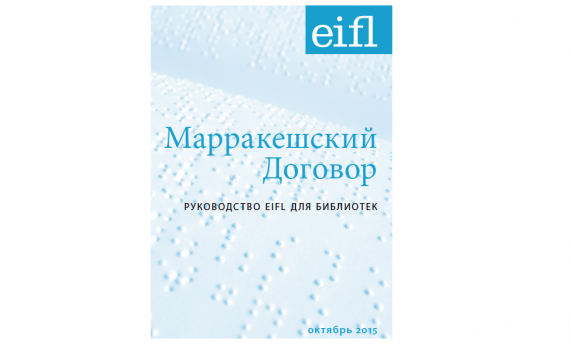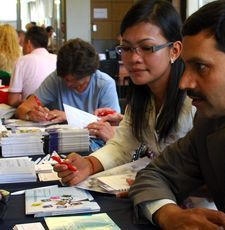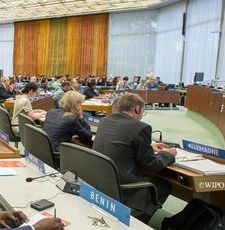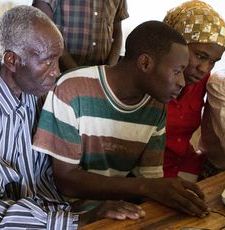
ABOUT THE RESOURCE
The Marrakesh Treaty: an EIFL Guide for Libraries provides an introduction to the Marrakesh Treaty for persons with print disabilities, its key provisions and recommendations for national implementation in order to maximize the opportunities it offers to libraries to increase the reading materials available to persons with print disabilities.
Libraries are key to the success of the Marrakesh Treaty for two main reasons. Throughout the world, libraries have a long history serving people with print disabilities, and only blind people’s organizations, libraries and other so-called “authorized entities” can send accessible format copies to other countries. Because the treaty provides countries with important policy options, librarians need to be involved in the development of implementing national legislation to ensure the maximum possible benefit, and to effectively meet the objective of the treaty - to end the book famine for print disabled people.
The EIFL guide - the first of its kind - is in two parts. Part One is a straightforward introduction to the treaty, its key provisions, and the role of libraries in contributing to the treaty’s objectives. Part Two provides a practical interpretation of the major technical provisions, with recommendations, in line with public interest goals of enabling access to knowledge.
EIFL thanks Ms Aisulu Chubarova, ARTE Law Firm, Kyrgyzstan for the translation into Russian.
Библиотеки являются ключом к успеху реализации договора по двум основным причинам. Во всем мире в течение длительного времени библиотеки предоставляют услуги для слепых и лиц с нарушениями зрения или иными ограниченными способностями воспринимать печатную информацию. И только организации слепых, библиотеки и так называемые «уполномоченные органы» могут отправлять экземпляры произведений в доступном формате в другие страны. Поскольку договор предоставляет странам возможность важных изменении в политике, библиотекари должны участвовать в развитие реализации национального законодательства для обеспечения максимально возможной пользы, и эффективно решить задачу договора – проблему «книжного голода» для лиц с ограниченной способностью воспринимать печатную информацию.
Настоящее руководство состоит из двух частей. В первой части представлено введение в договор, его ключевые положения и освещена роль библиотек в достижении целей договора. Во второй части представлено практическое толкование основных технических положений в соответствии с общественной целью обеспечить доступ к знаниям.
EIFL благодарит г-жу Айсулу Чубарову (Кыргызская Республика) за перевод на русский язык.

SHARE / PRINT









